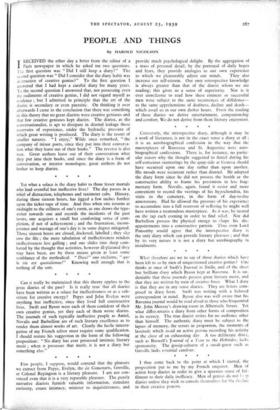Few people, I suppose, would contend that the pleasure we
extract from Pepys, Evelyn, the de Goncourts, Greville, or Colonel Repington is a literary pleasure. I am not con- vmced even that it is a very reputable pleasure. The purely narrative diarists furnish valuable information, stimulate curiosity, create intimacy, minister to inquisitiveness, and provide much psychological delight. By the aggregation of a mass of personal detail, by the portrayal of daily hopes and fears, they provide analogies to our own experience to which we pleasurably adjust our minds. They also increase our self-esteem. Our own retrospective knowledge is always greater than that of the diarist whom we are reading; this gives us a sense of superiority. Nor is it ever unwelcome to read how these eminent or successful men were subject to the same recurrences of diffidence— to the same apprehensions of deafness, decline and death— which assail us in our own darker hours. From the reading of these diaries we derive entertainment, companionship and comfort. We do not derive from them literary enjoyment.








































 Previous page
Previous page